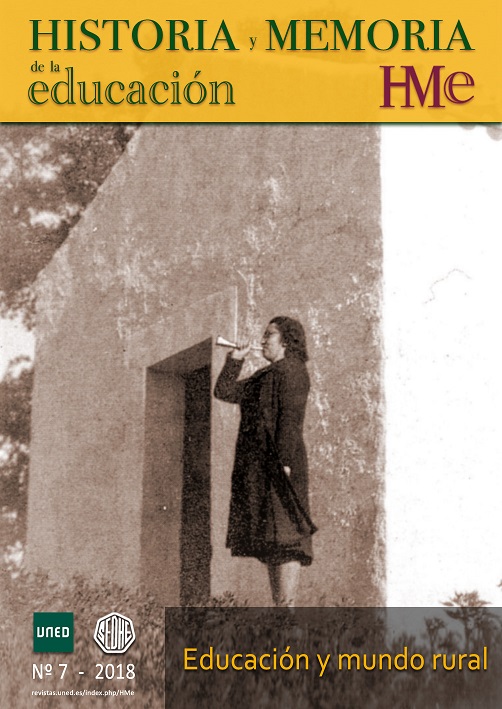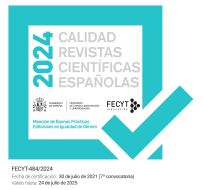Miguel Soler en la tierra de los valientes. La Mina, Uruguay, 1954-1961
DOI:
https://doi.org/10.5944/hme.7.2018.19892Parole chiave:
Núcleo Escolar, Educación Fundamental, Educación rural en UruguayAbstract
En 1954 tuvo lugar en el Uruguay rural una de las experiencias educativas más innovadoras de la década: el Primer Núcleo Escolar Experimental de La Mina. Fue dirigida por Miguel Soler Roca, un maestro hispanouruguayo que había sido becado para estudiar educación fundamental en el CREFAL poco tiempo después de la creación de este organismo. En 1958 Margaret J. Anstee, representante de la ONU en Uruguay, se desplazó a La Mina para hacer un reportaje que permitiera mostrar las claves del éxito de la propuesta y explorar la posibilidad de utilizar la experiencia como modelo inspirador en otras latitudes. El presente texto transcribe dicha entrevista, inédita hasta el momento, contextualizándola con otros documentos que explican el devenir de esta iniciativa
Downloads
Riferimenti bibliografici
Comando General del Ejército (1978). Testimonio de una nación agredida. Montevideo: División de Publicaciones y Ediciones Universidad de la República.
Soler Roca, Miguel (2005). Réplica de un maestro agredido. Educar en Uruguay: de la construcción al derribo, de la resistencia a la esperanza. Montevideo: Ediciones Trilce.
##submission.downloads##
Pubblicato
Come citare
Fascicolo
Sezione
Licenza
Authors who publish in Historia y Memoria de la Educación agree to the following terms:
- Authors retain copyright and grant the journal right of first publication with the work simultaneously licensed under a Creative Commons Attribution-NonCommercial 4.0 International that allows others to share the work with an acknowledgement of the work's authorship and initial publication in this journal.
- Authors are able to enter into separate, additional contractual arrangements for the non-exclusive distribution of the journal's published version of the work (e.g., post it to an institutional repository or publish it in a book), with an acknowledgement of its initial publication in this journal.
- Authors are permitted and encouraged to post their work online (e.g., in institutional repositories or on their website) prior to and during the submission process, as it can lead to productive exchanges, as well as earlier and greater citation of published work (See The Effect of Open Access).









